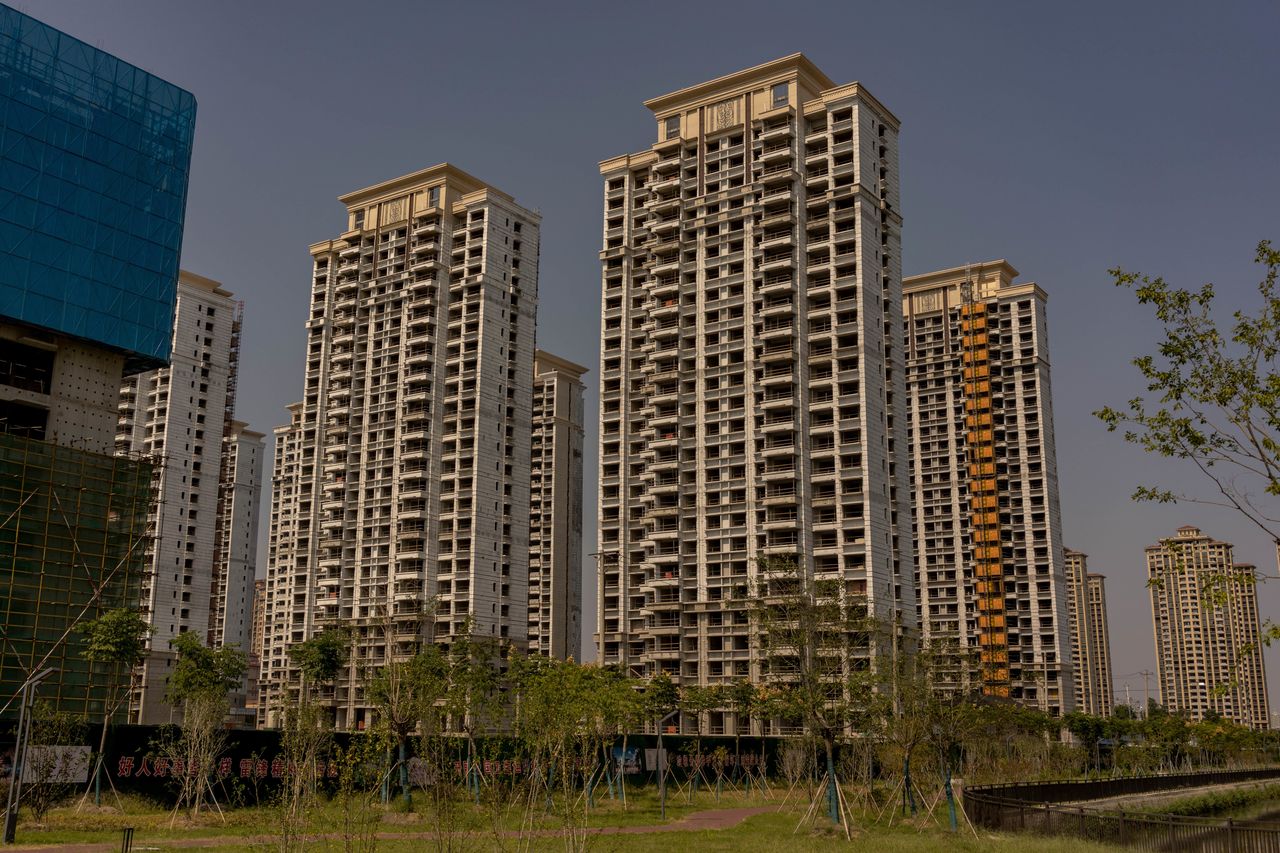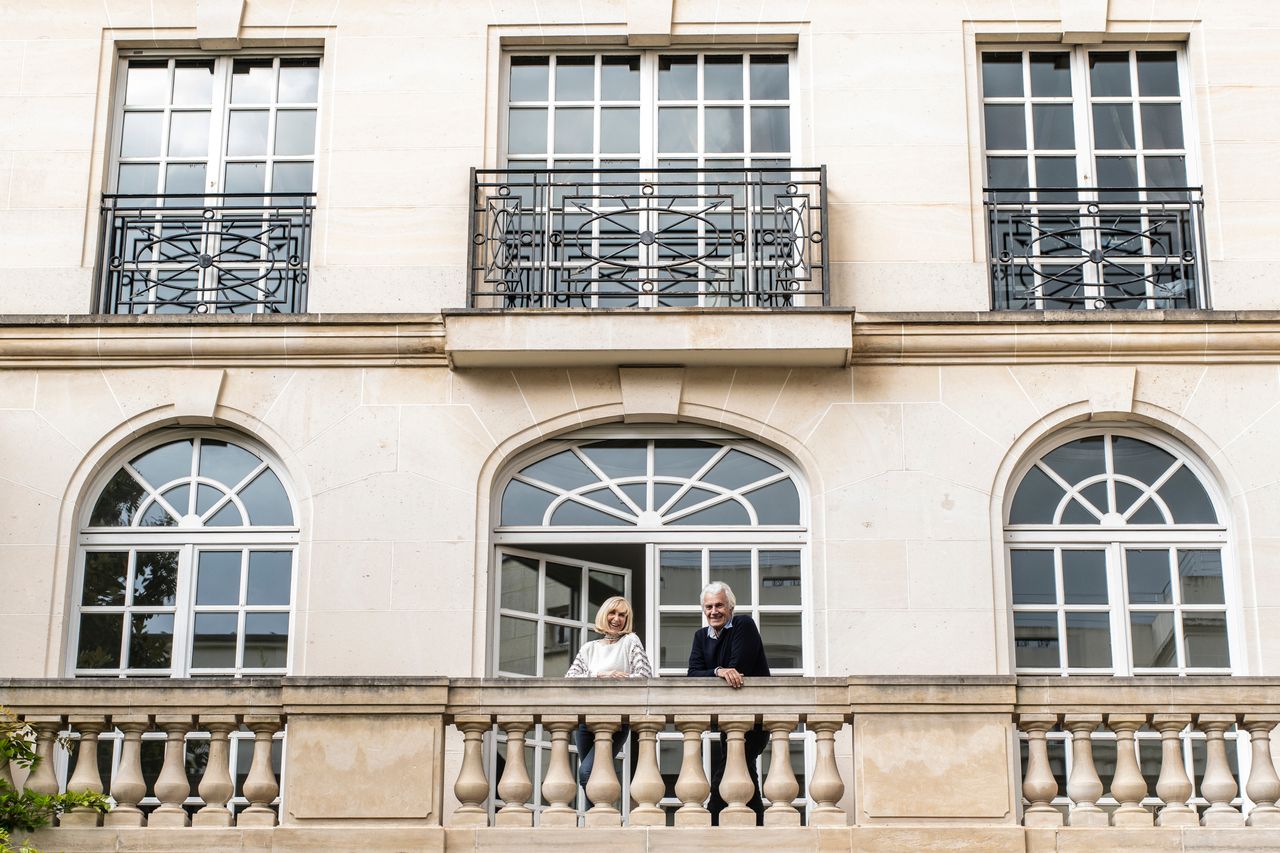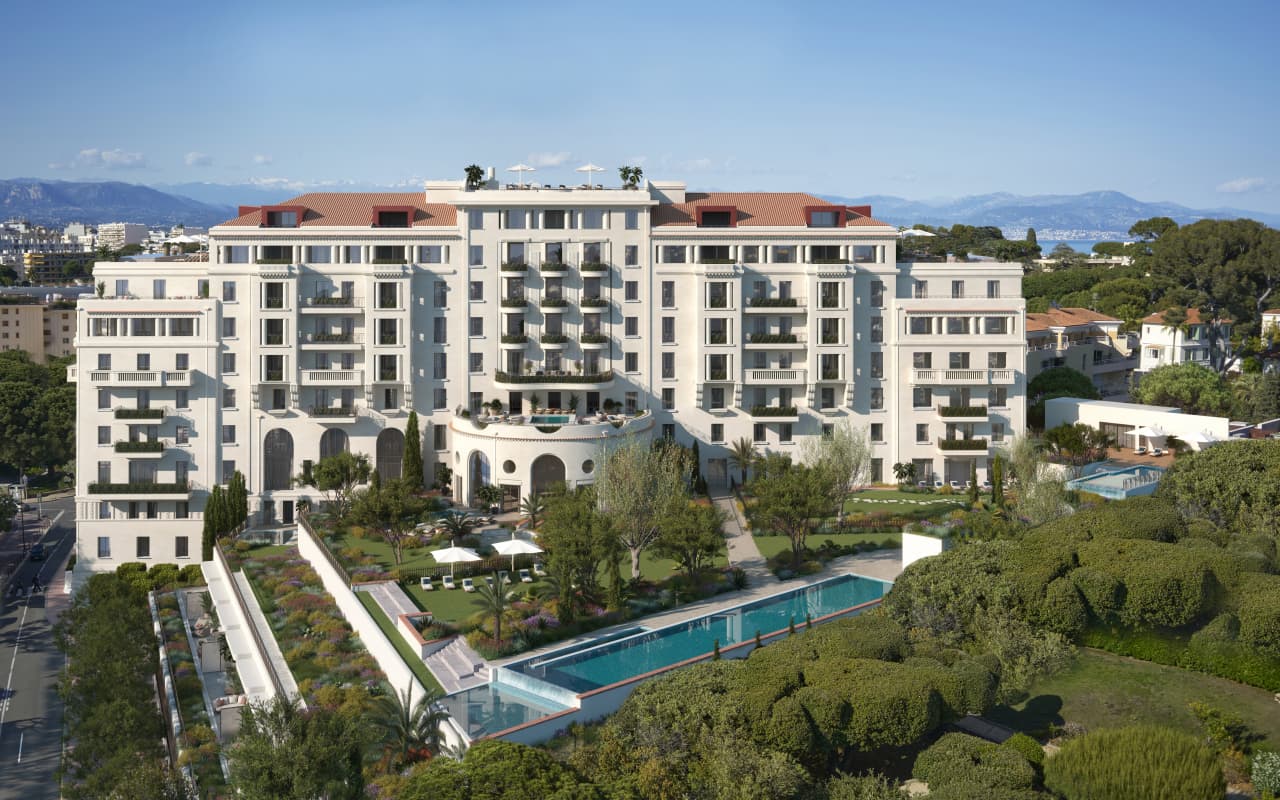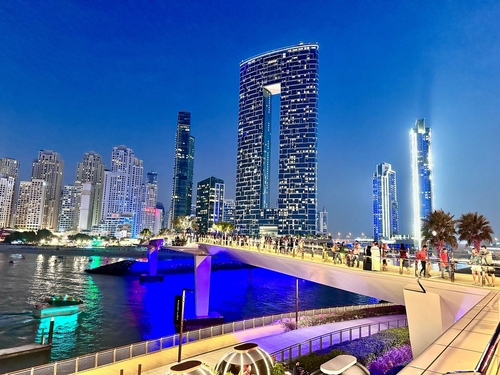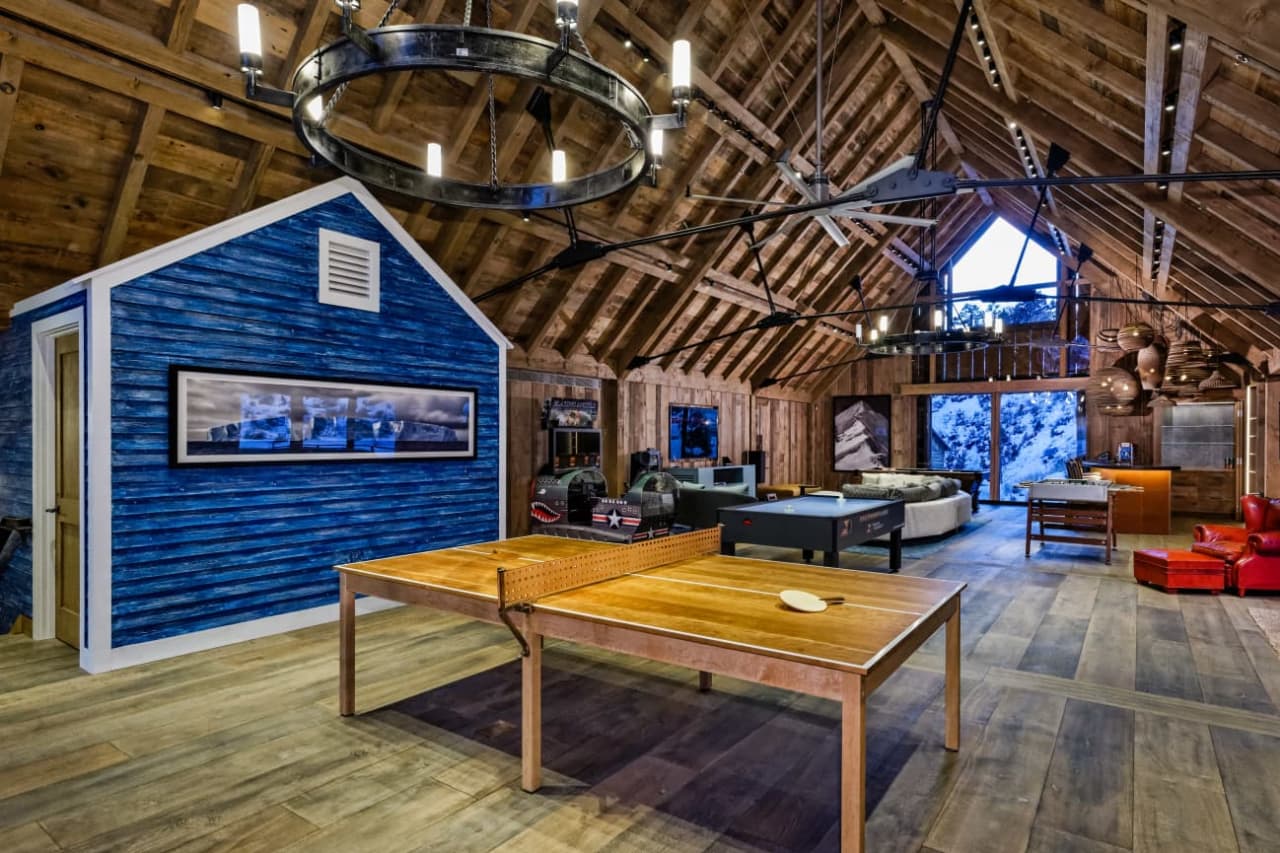China’s Plan to Manage Evergrande: Take It Apart, Slowly
Beijing is working on a controlled implosion of the real-estate giant.
Some investors feared that China Evergrande Group, the world’s most indebted real-estate firm, would collapse spectacularly, triggering losses far and wide. Instead, the Chinese state is dismantling the giant developer slowly and behind the scenes, in what amounts to one of the biggest financial challenges Beijing has faced in years.
The plan, according to people familiar with the matter and official government statements, is to manage a controlled implosion by selling off some Evergrande assets to Chinese companies while limiting damage to home buyers and businesses involved in its projects.
Chinese authorities must do this without bringing down the country’s epic property boom. Evergrande is struggling to manage roughly $300 billion in liabilities, including close to $20 billion in outstanding U.S. dollar bonds.
Looking out for foreign investors isn’t a priority, people familiar with the matter say. Still, Beijing is closely monitoring the situation, because authorities need credit markets to be healthy to prevent other property developers from failing and because they worry about China’s image, one of those people said.
It could take years to take the company apart, and many details are still being worked out, people familiar with the matter say. It’s possible some version of Evergrande could survive, though it would likely be much smaller.
Much of the work so far has focused on Evergrande’s hundreds of stalled projects, a process that will likely involve bringing in other developers to take over.
Under orders from Beijing, most of the 200 or so cities with Evergrande projects have set up task forces to help manage the process, people familiar with the matter say. Local authorities have been ordered to assemble accountants to examine Evergrande’s local finances, talk to other developers about completing unfinished projects, and set up law-enforcement teams to monitor any public discontent.
The State Council’s Information Office and China’s Ministry of Housing and Urban-Rural Development didn’t respond to requests for comment. Evergrande has said it’s working hard to resolve its issues, at times with government involvement.
In a WeChat statement on Oct. 31, Evergrande thanked the government “at all levels” for helping it deliver a residential project to home buyers in Zhejiang province. In the past few months, officers from the local housing and urban-rural development bureau had helped solve problems, the company said.
Evergrande said its engineering department had strictly followed government instructions, without elaborating on what they were.
A central concern for the government is making sure people get the properties they paid for.
While some Chinese citizens have ploughed their savings into new homes, many individuals also bought apartments as investments in recent years, without any intention of living in them or renting them out. Chinese developers often collect money from buyers before completing construction, putting that money at risk if projects get abandoned or suspended.
Evergrande presold more than a million apartments that remain unfinished. If those units aren’t completed, many households could suffer painful losses, undermining confidence in the housing market. The industry accounts for roughly one-fourth of the country’s economic activity and the majority of household wealth.
Local authorities have required Evergrande to transfer revenues from unfinished homes to escrow accounts overseen by the government, according to notices reviewed by The Wall Street Journal and Chinese media.
Local governments are funnelling some of that money to Evergrande’s suppliers so construction can continue, according to people familiar with the matter. Evergrande has had to submit applications to the government-managed accounts for the funds to be disbursed, one of the people said.
“We are gradually receiving payments either from Evergrande or from accounts overseen by the government,” said an investor-relations employee of Shenyang Landscape Co., a landscape design and construction services firm that works with Evergrande. He said work has resumed in some cities, echoing statements from Evergrande, which recently said it has restarted construction at a number of sites.
In some places where projects weren’t as far along, local governments have urged Evergrande to scrap work entirely and return payments to home buyers, people familiar with the matter say. Local authorities are talking to other developers about taking over the land, they said.
In Zhejiang province, a county-level government made Evergrande pay back over 50 million yuan, or around $7.8 million, in full refunds to more than 200 owners of unbuilt homes, according to a government release.
The company is sitting on many completed and unsold homes in different locations. It’s less clear what will happen with those.
While Beijing’s program looks well-organized in some cities, it appears to be moving slowly and haphazardly in others. Many suppliers say they’re still waiting for funds. Changsen Building Materials, a wood supplier in the city of Dongguan, hasn’t been paid by Evergrande and has filed a claim against the developer in a local court, the business’s owner told the Journal. He declined to say how much the company is owed.
Several other building-materials companies said in regulatory filings or published notices that they still have large unpaid bills from Evergrande and are working with the company to take over unfinished apartments as payment in kind.
Suzhou Gold Mantis Construction Decoration Co. is working with Evergrande to resolve millions of dollars in outstanding payments, a representative told the Journal. The company said in a recent regulatory filing that there was “significant uncertainty” in how Evergrande would settle its unpaid bills.
Two other major partners, a supplier of waterproof materials and an architecture and interior-design company, told investors in recent months that they were no longer taking on Evergrande projects.
Guangdong Dongpeng Ceramic Co., a tile maker, said in its third-quarter report on Oct. 30 that the main reason for its decline in profit and revenue growth was because Evergrande couldn’t pay its bills.
Some buyers who recently took ownership of Evergrande apartments found problems such as unfinished interiors and gas and water leaks, according to complaints posted on government websites and social media.
At the same time, China’s central government is working to help Evergrande sell off larger parts of its empire.
In September, China’s financial regulators urged Evergrande to sell a nearly 20% stake in Shengjing Bank Co. to a state-owned enterprise, according to a person familiar with the issue. Evergrande soon struck a deal.
The company has previously said it sold property units to suppliers and contractors to settle billions of dollars in outstanding payments. It raised more than $50 million last month by selling two of its private jets and $145 million this month by unloading some of its shares in an online media company.
Evergrande also managed to sell its stake in a residential project called The Vertex in Hong Kong to a partner shareholder, according to a person with knowledge of the matter. Evergrande employees were instructed to withdraw from the project in recent days after the deal was completed, internal conversations reviewed by the Journal showed.
A $2.6 billion deal for a majority stake in Evergrande’s property-management unit fell apart last month.
Chinese authorities have publicly suggested they won’t bail out Evergrande or inject money into the company, which would undermine their goal of showing that no private firms are too big to fail in China. They’re also working to discourage real-estate speculation.
“The stage where real-estate companies rely on high leverage and quick turnover to achieve high profits no longer exists,” the Economic Daily, a state newspaper, said in an article in September. “Business operators must change their mentality as soon as possible and actively respond to changes in the situation.”
Beijing helped trigger much of the stress at Evergrande when it imposed new rules last year, known as the “three red lines,” requiring developers to bring down debt levels before they could borrow more.
The rules squeezed Evergrande, which had borrowed heavily as it expanded aggressively in recent years, including into businesses such as healthcare and theme parks.
Evergrande’s billionaire founder, Hui Ka Yan, presented a survival strategy at a company meeting in late October, saying Evergrande would turn an electric-vehicle unit into its core business within a decade, while drastically cutting property sales by more than two-thirds, the state-owned Securities Times reported.
The EV business hasn’t yet generated any revenue from car sales. Although Evergrande recently avoided defaults on some of its dollar bonds by making overdue payments shortly before the end of 30-day grace periods, it remains on the hook for more payments in coming months, including several overdue payments with final deadlines this week.
Officials involved in Evergrande’s cleanup say they believe they have sufficient tools and experience to pull it off without seriously harming the property market, according to people familiar with the matter. They say Beijing has become more adept at managing private-sector meltdowns after handling others in recent years, including conglomerate HNA Group Co.
The risk for Beijing is in overestimating its ability to engineer outcomes in the economy, especially given Evergrande’s size.
The real-estate market is so entwined with China’s economy that any missteps could be dangerous. Home sales have fallen sharply recently, as buyers have become unnerved about the ability of many developers to stay afloat.
Falling land sales to developers are another concern, since such sales are a major source of public funds, accounting for more than 30% of local government revenue in 2020, according to financial-services firm Nomura.
Evergrande’s financial troubles have helped spark a huge selloff in the bonds of Chinese developers. At least six have either defaulted on their dollar debt or asked investors to wait longer for repayment, as credit market conditions have made it impossible for them to sell new bonds.
The average yield on an ICE BofA index of Chinese high-yield bonds this week reached nearly 28%, its highest since the 2009 global financial crisis, reflecting extreme risk aversion among investors.
Regulators recently tried to shore up confidence in Chinese debt markets by publicly encouraging firms to meet offshore debt obligations.
At the same time, authorities have started to moderate some of the stringent measures designed to tame the country’s property boom. State media reports that some regions have scrapped curbs on mortgages. Local governments are also extending subsidies to home buyers and acting to prevent prices from declining.
 Copyright 2020, Dow Jones & Company, Inc. All Rights Reserved Worldwide. LEARN MORE
Copyright 2020, Dow Jones & Company, Inc. All Rights Reserved Worldwide. LEARN MORE
This stylish family home combines a classic palette and finishes with a flexible floorplan
Just 55 minutes from Sydney, make this your creative getaway located in the majestic Hawkesbury region.
Ahead of the Games, a breakdown of the city’s most desirable places to live
PARIS —Paris has long been a byword for luxurious living. The traditional components of the upscale home, from parquet floors to elaborate moldings, have their origins here. Yet settling down in just the right address in this low-rise, high-density city may be the greatest luxury of all.
Tradition reigns supreme in Paris real estate, where certain conditions seem set in stone—the western half of the city, on either side of the Seine, has long been more expensive than the east. But in the fashion world’s capital, parts of the housing market are also subject to shifting fads. In the trendy, hilly northeast, a roving cool factor can send prices in this year’s hip neighborhood rising, while last year’s might seem like a sudden bargain.
This week, with the opening of the Olympic Games and the eyes of the world turned toward Paris, The Wall Street Journal looks at the most expensive and desirable areas in the City of Light.
The Most Expensive Arrondissement: the 6th
Known for historic architecture, elegant apartment houses and bohemian street cred, the 6th Arrondissement is Paris’s answer to Manhattan’s West Village. Like its New York counterpart, the 6th’s starving-artist days are long behind it. But the charm that first wooed notable residents like Gertrude Stein and Jean-Paul Sartre is still largely intact, attracting high-minded tourists and deep-pocketed homeowners who can afford its once-edgy, now serene atmosphere.
Le Breton George V Notaires, a Paris notary with an international clientele, says the 6th consistently holds the title of most expensive arrondissement among Paris’s 20 administrative districts, and 2023 was no exception. Last year, average home prices reached $1,428 a square foot—almost 30% higher than the Paris average of $1,100 a square foot.
According to Meilleurs Agents, the Paris real estate appraisal company, the 6th is also home to three of the city’s five most expensive streets. Rue de Furstemberg, a secluded loop between Boulevard Saint-Germain and the Seine, comes in on top, with average prices of $2,454 a square foot as of March 2024.
For more than two decades, Kyle Branum, a 51-year-old attorney, and Kimberly Branum, a 60-year-old retired CEO, have been regular visitors to Paris, opting for apartment rentals and ultimately an ownership interest in an apartment in the city’s 7th Arrondissement, a sedate Left Bank district known for its discreet atmosphere and plutocratic residents.
“The 7th was the only place we stayed,” says Kimberly, “but we spent most of our time in the 6th.”
In 2022, inspired by the strength of the dollar, the Branums decided to fulfil a longstanding dream of buying in Paris. Working with Paris Property Group, they opted for a 1,465-square-foot, three-bedroom in a building dating to the 17th century on a side street in the 6th Arrondissement. They paid $2.7 million for the unit and then spent just over $1 million on the renovation, working with Franco-American visual artist Monte Laster, who also does interiors.
The couple, who live in Santa Barbara, Calif., plan to spend about three months a year in Paris, hosting children and grandchildren, and cooking after forays to local food markets. Their new kitchen, which includes a French stove from luxury appliance brand Lacanche, is Kimberly’s favourite room, she says.
Another American, investor Ashley Maddox, 49, is also considering relocating.
In 2012, the longtime Paris resident bought a dingy, overstuffed 1,765-square-foot apartment in the 6th and started from scratch. She paid $2.5 million and undertook a gut renovation and building improvements for about $800,000. A centrepiece of the home now is the one-time salon, which was turned into an open-plan kitchen and dining area where Maddox and her three children tend to hang out, American-style. Just outside her door are some of the city’s best-known bakeries and cheesemongers, and she is a short walk from the Jardin du Luxembourg, the Left Bank’s premier green space.
“A lot of the majesty of the city is accessible from here,” she says. “It’s so central, it’s bananas.” Now that two of her children are going away to school, she has listed the four-bedroom apartment with Varenne for $5 million.
The Most Expensive Neighbourhoods: Notre-Dame and Invalides
Garrow Kedigian is moving up in the world of Parisian real estate by heading south of the Seine.
During the pandemic, the Canada-born, New York-based interior designer reassessed his life, he says, and decided “I’m not going to wait any longer to have a pied-à-terre in Paris.”
He originally selected a 1,130-square-foot one-bedroom in the trendy 9th Arrondissement, an up-and-coming Right Bank district just below Montmartre. But he soon realised it was too small for his extended stays, not to mention hosting guests from out of town.
After paying about $1.6 million in 2022 and then investing about $55,000 in new decor, he put the unit up for sale in early 2024 and went house-shopping a second time. He ended up in the Invalides quarter of the 7th Arrondissement in the shadow of one Paris’s signature monuments, the golden-domed Hôtel des Invalides, which dates to the 17th century and is fronted by a grand esplanade.
His new neighbourhood vies for Paris’s most expensive with the Notre-Dame quarter in the 4th Arrondissement, centred on a few islands in the Seine behind its namesake cathedral. According to Le Breton, home prices in the Notre-Dame neighbourhood were $1,818 a square foot in 2023, followed by $1,568 a square foot in Invalides.
After breaking even on his Right Bank one-bedroom, Kedigian paid $2.4 million for his new 1,450-square-foot two-bedroom in a late 19th-century building. It has southern exposures, rounded living-room windows and “gorgeous floors,” he says. Kedigian, who bought the new flat through Junot Fine Properties/Knight Frank, plans to spend up to $435,000 on a renovation that will involve restoring the original 12-foot ceiling height in many of the rooms, as well as rescuing the ceilings’ elaborate stucco detailing. He expects to finish in 2025.
Over in the Notre-Dame neighbourhood, Belles demeures de France/Christie’s recently sold a 2,370-square-foot, four-bedroom home for close to the asking price of about $8.6 million, or about $3,630 a square foot. Listing agent Marie-Hélène Lundgreen says this places the unit near the very top of Paris luxury real estate, where prime homes typically sell between $2,530 and $4,040 a square foot.
The Most Expensive Suburb: Neuilly-sur-Seine
The Boulevard Périphérique, the 22-mile ring road that surrounds Paris and its 20 arrondissements, was once a line in the sand for Parisians, who regarded the French capital’s numerous suburbs as something to drive through on their way to and from vacation. The past few decades have seen waves of gentrification beyond the city’s borders, upgrading humble or industrial districts to the north and east into prime residential areas. And it has turned Neuilly-sur-Seine, just northwest of the city, into a luxury compound of first resort.
In 2023, Neuilly’s average home price of $1,092 a square foot made the leafy, stately community Paris’s most expensive suburb.
Longtime residents, Alain and Michèle Bigio, decided this year is the right time to list their 7,730-square-foot, four-bedroom townhouse on a gated Neuilly street.
The couple, now in their mid 70s, completed the home in 1990, two years after they purchased a small parcel of garden from the owners next door for an undisclosed amount. Having relocated from a white-marble château outside Paris, the couple echoed their previous home by using white- and cream-coloured stone in the new four-story build. The Bigios, who will relocate just back over the border in the 16th Arrondissement, have listed the property with Emile Garcin Propriétés for $14.7 million.
The couple raised two adult children here and undertook upgrades in their empty-nester years—most recently, an indoor pool in the basement and a new elevator.
The cool, pale interiors give way to dark and sardonic images in the former staff’s quarters in the basement where Alain works on his hobby—surreal and satirical paintings, whose risqué content means that his wife prefers they stay downstairs. “I’m not a painter,” he says. “But I paint.”
The Trendiest Arrondissement: the 9th
French interior designer Julie Hamon is theatre royalty. Her grandfather was playwright Jean Anouilh, a giant of 20th-century French literature, and her sister is actress Gwendoline Hamon. The 52-year-old, who divides her time between Paris and the U.K., still remembers when the city’s 9th Arrondissement, where she and her husband bought their 1,885-square-foot duplex in 2017, was a place to have fun rather than put down roots. Now, the 9th is the place to do both.
The 9th, a largely 19th-century district, is Paris at its most urban. But what it lacks in parks and other green spaces, it makes up with nightlife and a bustling street life. Among Paris’s gentrifying districts, which have been transformed since 2000 from near-slums to the brink of luxury, the 9th has emerged as the clear winner. According to Le Breton, average 2023 home prices here were $1,062 a square foot, while its nearest competitors for the cool crown, the 10th and the 11th, have yet to break $1,011 a square foot.
A co-principal in the Bobo Design Studio, Hamon—whose gut renovation includes a dramatic skylight, a home cinema and air conditioning—still seems surprised at how far her arrondissement has come. “The 9th used to be well known for all the theatres, nightclubs and strip clubs,” she says. “But it was never a place where you wanted to live—now it’s the place to be.”
With their youngest child about to go to college, she and her husband, 52-year-old entrepreneur Guillaume Clignet, decided to list their Paris home for $3.45 million and live in London full-time. Propriétés Parisiennes/Sotheby’s is handling the listing, which has just gone into contract after about six months on the market.
The 9th’s music venues were a draw for 44-year-old American musician and piano dealer, Ronen Segev, who divides his time between Miami and a 1,725-square-foot, two-bedroom in the lower reaches of the arrondissement. Aided by Paris Property Group, Segev purchased the apartment at auction during the pandemic, sight unseen, for $1.69 million. He spent $270,000 on a renovation, knocking down a wall to make a larger salon suitable for home concerts.
During the Olympics, Segev is renting out the space for about $22,850 a week to attendees of the Games. Otherwise, he prefers longer-term sublets to visiting musicians for $32,700 a month.
Most Exclusive Address: Avenue Junot
Hidden in the hilly expanses of the 18th Arrondissement lies a legendary street that, for those in the know, is the city’s most exclusive address. Avenue Junot, a bucolic tree-lined lane, is a fairy-tale version of the city, separate from the gritty bustle that surrounds it.
Homes here rarely come up for sale, and, when they do, they tend to be off-market, or sold before they can be listed. Martine Kuperfis—whose Paris-based Junot Group real-estate company is named for the street—says the most expensive units here are penthouses with views over the whole of the city.
In 2021, her agency sold a 3,230-square-foot triplex apartment, with a 1,400-square-foot terrace, for $8.5 million. At about $2,630 a square foot, that is three times the current average price in the whole of the 18th.
Among its current Junot listings is a 1930s 1,220-square-foot townhouse on the avenue’s cobblestone extension, with an asking price of $2.8 million.
This stylish family home combines a classic palette and finishes with a flexible floorplan
Just 55 minutes from Sydney, make this your creative getaway located in the majestic Hawkesbury region.









